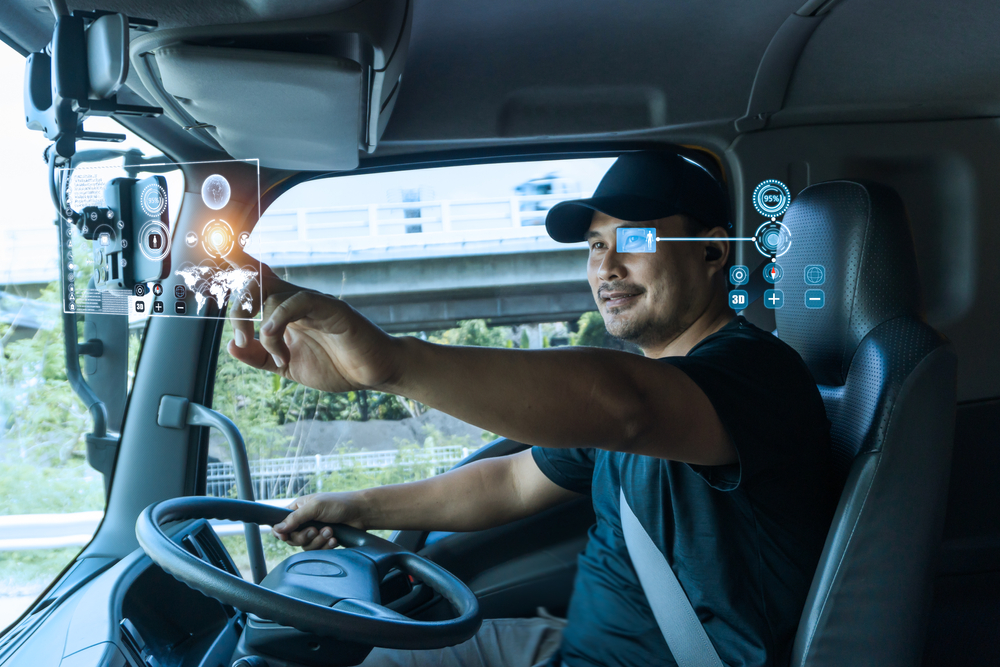
The Role of Technology in Modern Trucking
In today’s digital age, technology plays a pivotal role in transforming various industries, and the trucking industry is no exception. From freight logistics to trucking efficiency solutions, advancements in technology have revolutionized the way goods are transported, managed, and tracked.
Digital Transformation in Freight Logistics
Freight logistics technology has reshaped the landscape of transportation and supply chain management, offering innovative solutions to streamline operations and enhance efficiency:
1. Route Optimization
Advanced route optimization software leverages algorithms and real-time data to identify the most efficient routes for truck drivers. By considering factors such as traffic conditions, weather forecasts, and delivery schedules, route optimization technology helps minimize fuel consumption, reduce transportation costs, and improve delivery times.
2. Fleet Management Systems
Fleet management systems integrate GPS tracking, vehicle diagnostics, and driver performance monitoring to provide fleet managers with real-time visibility and control over their assets. These systems enable proactive maintenance scheduling, asset utilization optimization, and driver safety monitoring, enhancing overall fleet efficiency and productivity.
3. Electronic Logging Devices (ELDs)
Mandated by federal regulations, electronic logging devices (ELDs) are used to record drivers’ hours of service (HOS) electronically. ELDs automatically track driving hours, rest breaks, and duty status, ensuring compliance with hours of service regulations while minimizing paperwork and administrative burdens for trucking companies and drivers.
Advancements in Trucking Efficiency Solutions
Trucking efficiency solutions encompass a wide range of technologies and tools designed to improve operational efficiency, reduce costs, and enhance performance:
1. Telematics Systems
Telematics systems combine GPS technology, onboard sensors, and wireless communication to collect and transmit data on vehicle location, speed, fuel consumption, and engine performance. By analyzing telematics data, trucking companies can identify opportunities for operational improvements, driver training, and fuel efficiency optimization.
2. Predictive Maintenance
Predictive maintenance software utilizes machine learning algorithms and predictive analytics to forecast equipment failures and schedule maintenance proactively. By monitoring vehicle health in real-time and analyzing historical performance data, predictive maintenance solutions help prevent unplanned downtime, minimize repair costs, and extend the lifespan of trucking assets.
3. Autonomous Vehicles
Advancements in autonomous vehicle technology have the potential to revolutionize the trucking industry by enabling self-driving trucks to transport goods without human intervention. While fully autonomous trucks are still in development and testing stages, semi-autonomous features such as adaptive cruise control and lane-keeping assistance are already being implemented to improve safety and efficiency on the road.
The Future of Technology in Trucking
Looking ahead, the trucking industry is poised for further technological innovation and disruption, driven by emerging trends such as:
1. Electric and Alternative Fuel Vehicles
The adoption of electric and alternative fuel vehicles is gaining traction in the trucking industry as companies seek to reduce carbon emissions, lower operating costs, and comply with environmental regulations. Electric trucks, hydrogen fuel cell vehicles, and compressed natural gas (CNG) trucks offer cleaner and more sustainable transportation solutions for the future.
2. Blockchain Technology
Blockchain technology has the potential to revolutionize supply chain management and logistics by providing secure, transparent, and immutable records of transactions and data exchanges. In the trucking industry, blockchain can enhance traceability, visibility, and trust in the supply chain, enabling more efficient freight tracking, payment processing, and dispute resolution.
3. Internet of Things (IoT) Integration
The Internet of Things (IoT) is transforming trucking operations by connecting vehicles, sensors, and devices to the internet, enabling real-time data monitoring, analysis, and decision-making. IoT integration in trucking enables predictive maintenance, cargo monitoring, driver performance tracking, and fleet optimization, leading to greater operational efficiency and cost savings.
Summary
Technology continues to drive innovation and transformation in the trucking industry, offering unprecedented opportunities to improve efficiency, safety, and sustainability. From freight logistics technology in North Charleston to trucking efficiency solutions in South Carolina, advancements in digital technology are reshaping the way goods are transported and managed. As trucking companies embrace technology-driven solutions, they can optimize operations, minimize costs, and deliver superior service to meet the evolving needs of customers and stakeholders in the modern transportation landscape.
Need a Local Port Drayage in North Charleston, SC?
Welcome to All Points Transport! Established in 2005, All Points Transport has over 14 years of intermodal and containerized experience. Intermodal shipping is the process of moving various types of cargo while utilizing more than one method of transportation. We specialize in the one-way and round-trip inland movement of import and export containers, shipping product across the United States. At All Points Transport, we are the company to trust when it comes to shipping specialized cargo, including over-dimensional transport, hazmat transport, refrigerated transport, and more. We will guarantee a safe, reliable, and cost-effective service provided by our experienced staff. Call us today for more information!
Categorised in: Trucking
